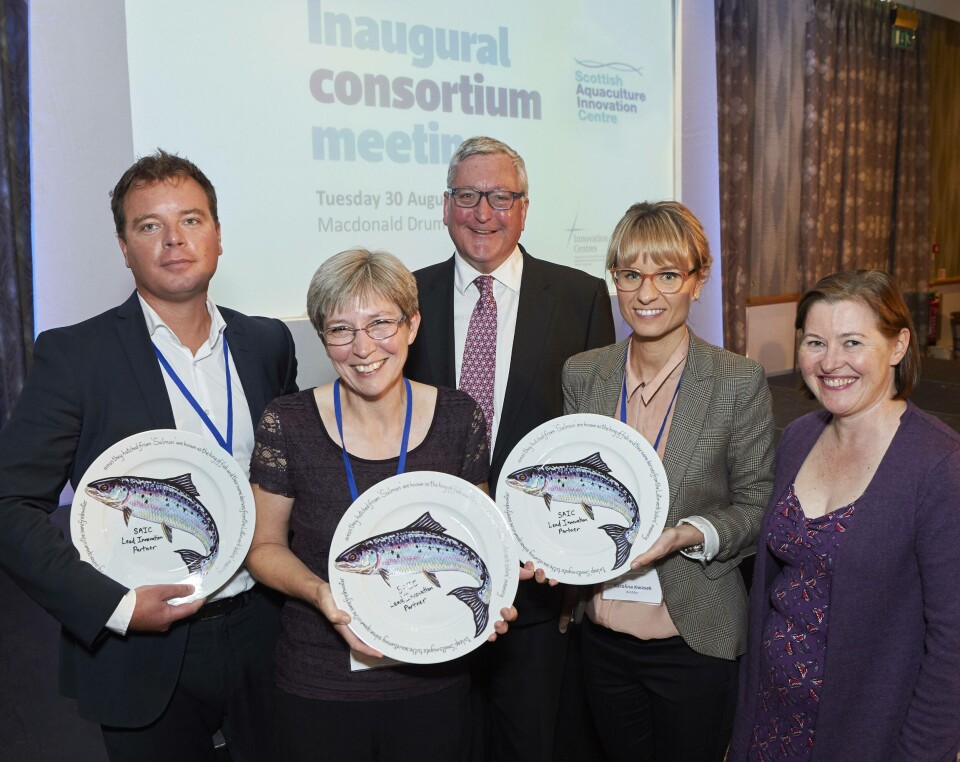
Cash boost for poultry project
A project designed to test consumer opinion about eating salmon that have been fed poultry by-products has just secured funding.
Led by Biomar, in partnership with supermarket giant Morrisons, Stirling’s Institute of Aquaculture and Saria, it aims to allow avian-derived protein, which is locally sourced and has low environmental impact, to be used in salmon feeds.
Currently, global salmon feed production relies on three major protein sources: soy meal, fish meal and land animal protein. However, in the UK industry there is a higher proportion of ingredients from marine resources and imported vegetable protein sources like soy protein concentrates. According to one leading academic, adopting avian protein could reduce the Scottish salmon industry’s feed costs by up to £40 million a year.
However, although Chilean and Australian salmon farming sectors have been using avian proteins for over a decade without issue, there are still some challenges around consumer acceptance of introducing these products into the UK’s food chain.
As Morrisons’ ?Fisheries & Aquaculture Manager Huw Thomas says: “As one of the UK’s largest supermarket retailers, we are committed to ensuring our seafood sourcing programme uses methods which are the least detrimental to the marine environment. This project will explore decreasing our reliance on marine resources for fish feed. If this concept proves acceptable to our customers, we could change our feed ingredient policy.”
The project will also be innovative in its cross-sector approach, spanning the supply chain from raw material producer (Saria), to feed producer (Biomar), through to UK retailer of farmed salmon (Morrisons).
Dr Karolina Kwasek, Product Developer at Biomar, states: “With data and insights incorporated from a multi-disciplinary research team of social scientists, biochemists, nutritionists and pathologists, the consortium covers the full salmon value chain and the power to influence change will be greater than ever before in the UK. Working with supply chain partners like Saria, we can ensure that the adoption of avian protein into the UK aquaculture feed industry also guarantees better use of food chain by-products, resulting in significant environmental savings through more efficient use of local resources and the reduction of imported ingredients.”
The initial six-month phase will focus on collecting data from retailers and consumers to identify the issues related to adopting avian proteins, and will cost £68,144 – of which the Scottish Aquaculture Innovation Centre (SAIC) is contributing £40,907. If consumer perception around avian proteins is found to be positive, later phases of the project could comprise nutritional and fish quality analysis.
Political approval
The funding was announced at an 80-strong SAIC consortium member event, which was held in Inverness yesterday and attended by industry, academia and Scotland's new Cabinet Secretary for Rural Economy and Connectivity, Fergus Ewing.
Mr Ewing stated: “I am thrilled to see such innovative thinking as we look for ways to increase sustainable production across the sector. Scottish salmon is Scotland’s single biggest food export and adds considerable value to our economy as a whole. Projects like these not only help the industry to grow economically but bring value through jobs, sustainability and environmental benefits. I want to see finfish and shellfish aquaculture continue to thrive, growing sustainably and led by world-leading science, innovation and research.”























































